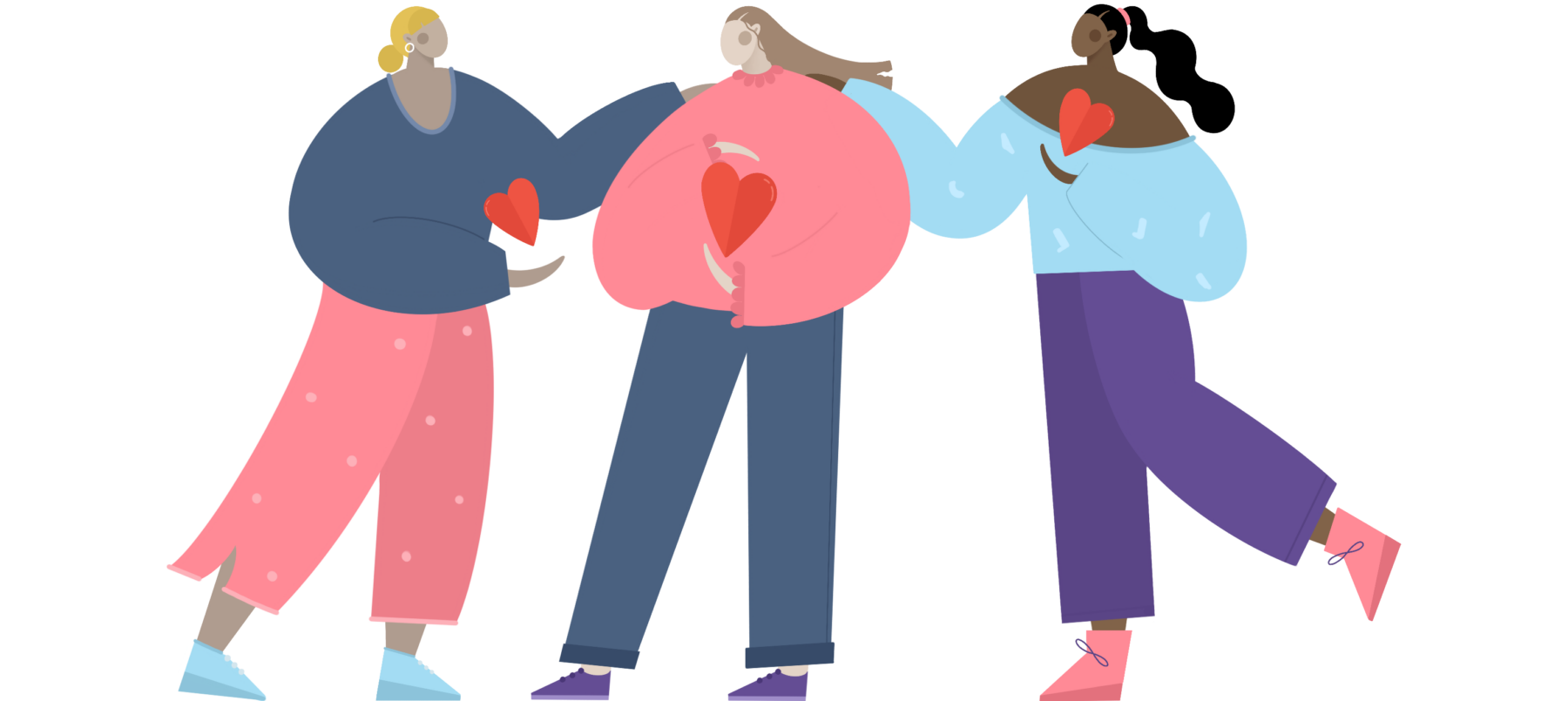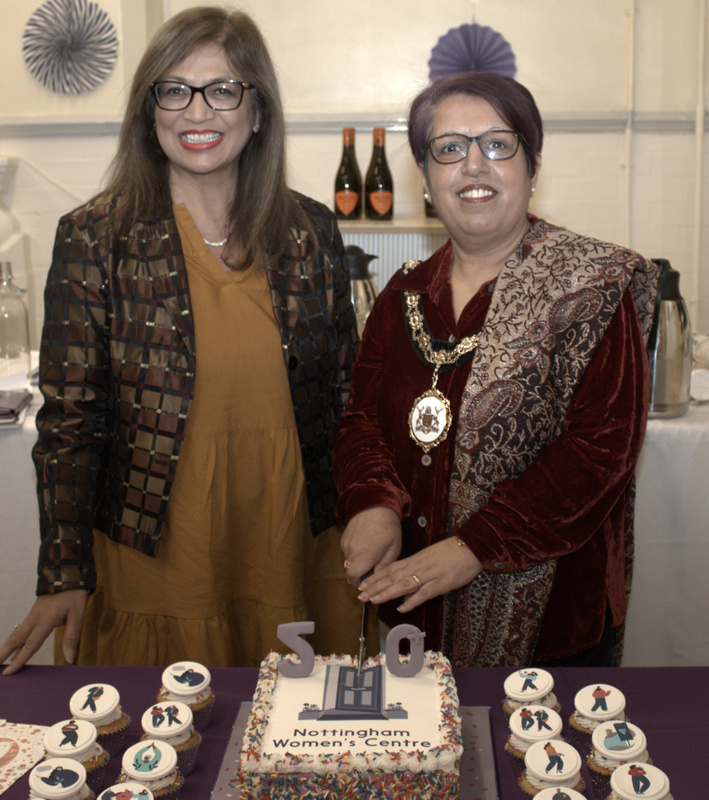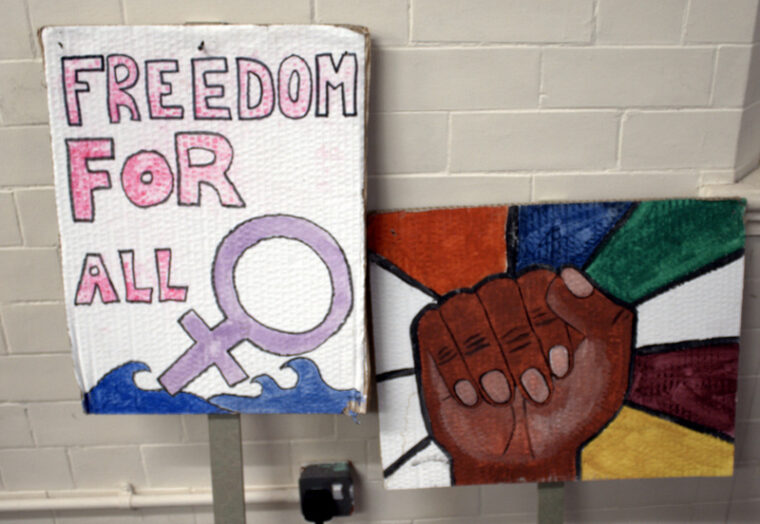Nottingham Women’s Centre launches Warm Space for Women, supported by John Lewis Nottingham.
Nottingham Women’s Centre and John Lewis have partnered to launch the Centre’s newly revamped ‘Welcome Space’. It’s now officially designated as a Warm Space for Women, ahead of the coldest winter months. We’re offering a warm, safe, and comfortable space for women to access right in Nottingham’s City Centre. The Warm Space will be open for all women from Monday – Friday, 9am – 5pm, at Nottingham Women’s Centre’s 30 Chaucer Street home and hub.
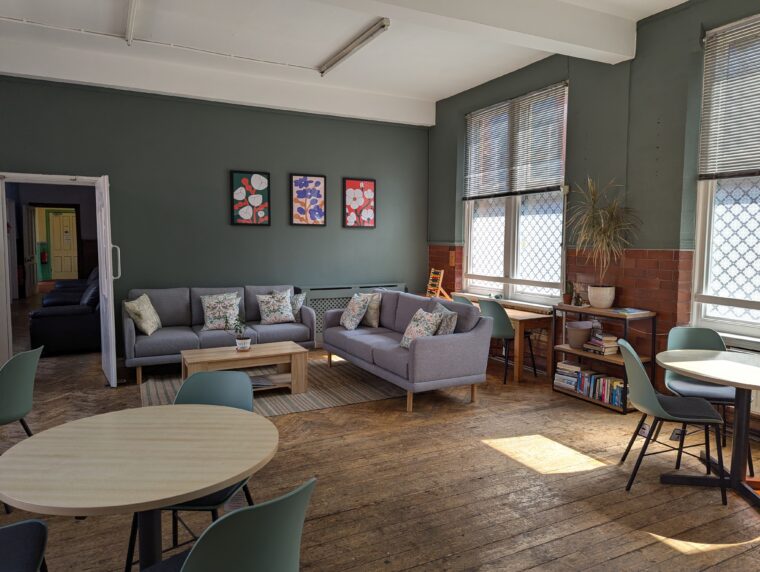
A dedicated team from John Lewis Nottingham has reimagined and refreshed the Centre’s main space. There’s a warmer, more inviting atmosphere for all women to access. The space will be open to any woman during the day. Hot drinks, books from our Library, and the many activities and services that run from the Centre offer home comforts and connection. The Centre’s hot shower and laundry facilities are also available to women. And a bookable, fully equipped kitchen provides a resource for women to cook meals for themselves and their families.
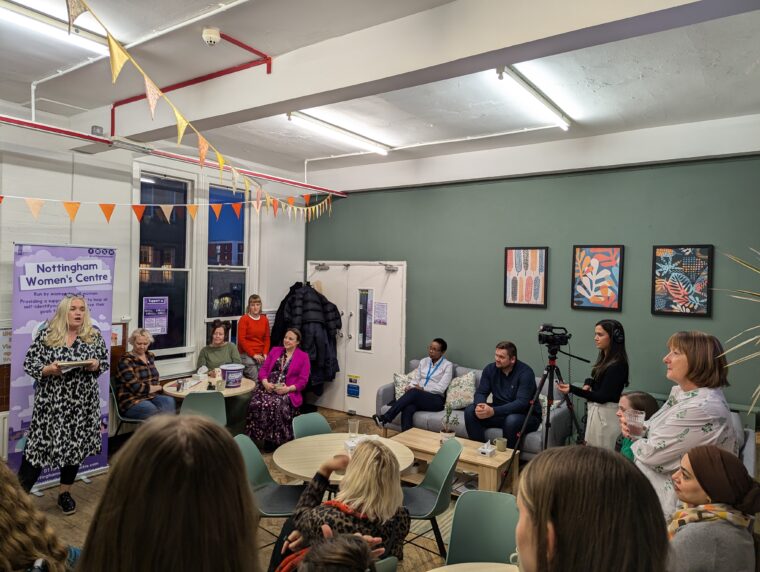
Louisa Mathews, CEO of Nottingham Women’s Centre said,
We are delighted to be able to offer all women a Warm Space this winter. We are so grateful to John Lewis for giving our space a makeover. We know that there are many reasons women might need somewhere warm to go to. From not being able to afford to turn the heating on, to homelessness, or unsafe accommodation. We invite any woman who needs a space during the day to just come in, grab a cuppa, and make themselves at home.
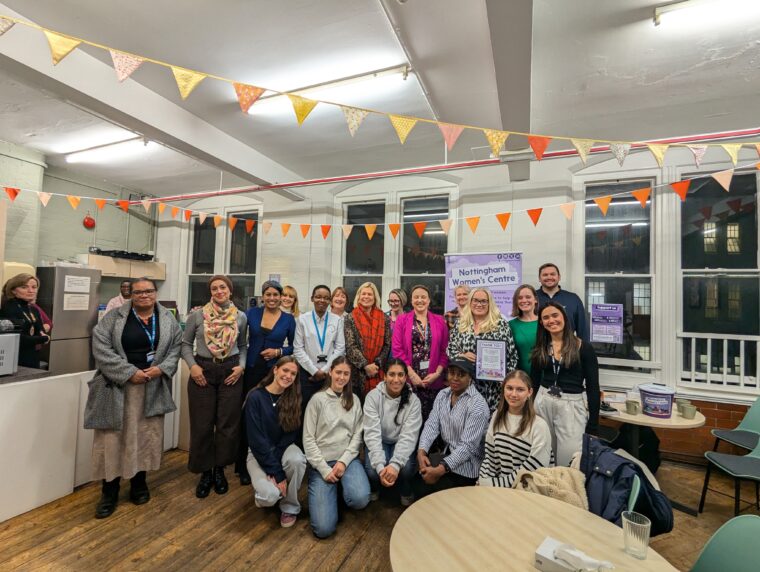
Jessica Faflik, Community Liaison Coordinator at John Lewis Nottingham said,
Thank you to the incredible team of Home Designers, whose vision and dedication have transformed this space into a warm, welcoming environment for the women who use the Centre. We have loved working with the Centre, and are excited to see this refreshed space being used as a dedicated “Warm Space” for all the women of Nottingham.
The space was officially launched in the presence of partners and local businesses on Tuesday 26th November, with press and media invited to join.
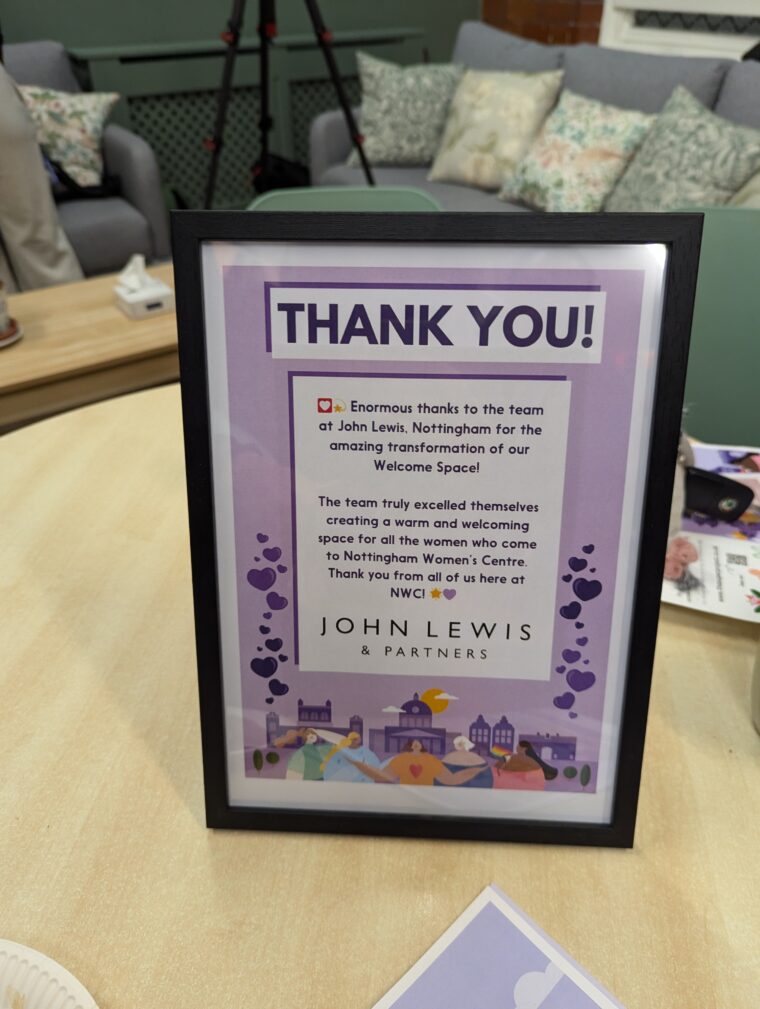
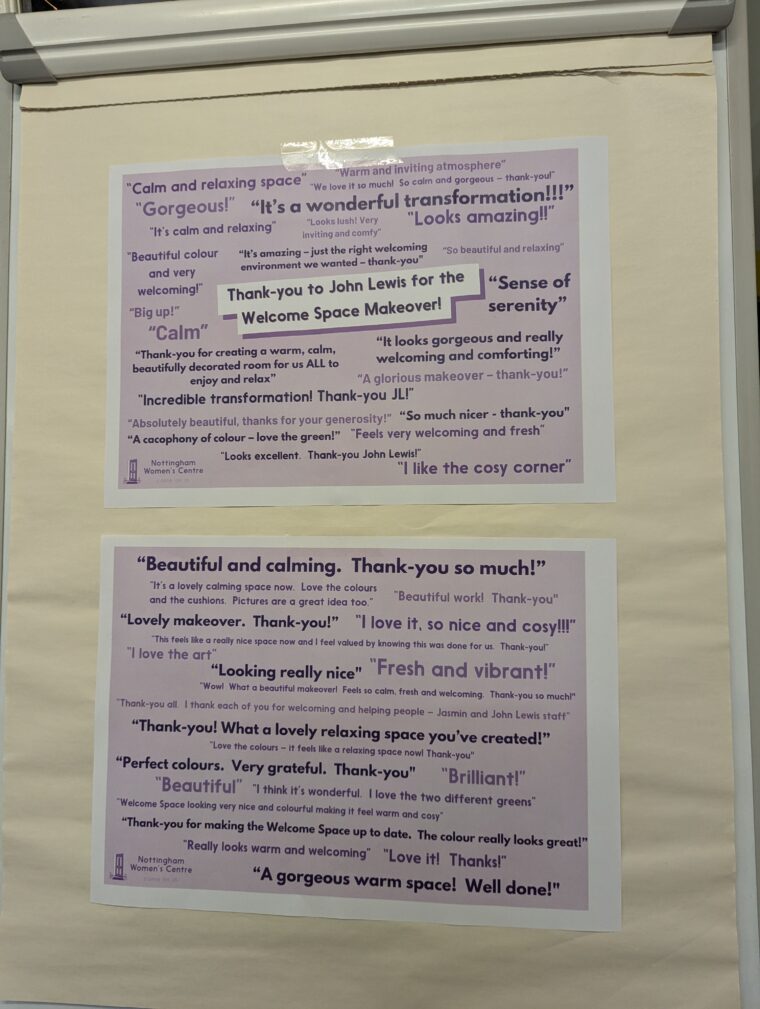
Find NWC’s Warm Space for Women
Visit us
Nottingham Women’s Centre,
30 Chaucer Street,
Nottingham,
NG1 5LP
You don’t need an appointment to visit the Centre. Women are welcome to come and use our Warm Space and Library at anytime during our opening hours, which are Monday – Friday, 9am – 5pm.
Nottingham Women’s Centre’s building and phone line closes at 4pm on Tuesday 24th December & re-opens on Thursday 2nd January 2025 at 9am. More info on our closure dates here: Winter Support

